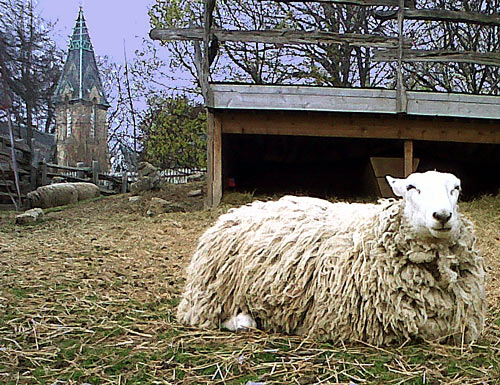

An important research project I continually worked on at Cookstown Greens was determining how to improve the soil in order to enhance flavour and shelf-life. (This was generously supported by federal and provincial research tax credits.) Continuing purchases by acclaimed chefs and discerning home cooks at premium prices confirmed there was an appealing difference. We could certainly demonstrate improvement, but we did not have the resources to confirm just what made it work.
It seems as though increasing biological activity in the soil is the key. Organic matter is the primary food of these organisms, so carbon appears to be an important element. Since these creatures make their homes in the soil, it makes sense to minimize tillage, compaction, and toxic chemicals in order to avoid disturbing their environment. Laboratory analysis indicated our soil supported over a hundred different varieties (and millions of organisms per gram) of bacteria and fungi; plus innumerable yeasts, protozoa, algae, and nematodes; and of course the beetles, ants and earthworms we can actually see.
Professor Ralph Martin, the Loblaw Chair in Sustainable Food Production at the University of Guelph, sees value in expanding this work in a more formalized manner. However, it has been difficult to obtain funding. Contemporary funding involves both the private sector and government. Since we are only looking at generic good practices, no individual would benefit – everyone would benefit. This “for the public good” research (traditionally funded by universities and governments) now requires broad-minded and generous private supporters as well as government support.
Dr. Paul Voroney of the School of Environmental Sciences (agricultural systems) and Dr. Lisa Duizr of the Department of Food Science (sensory perception) are excited to lead this project. They see so much potential that they want to get the project started this summer. They hope that by having it up-and-running some institution or foundation will offer partial funding (maybe $25,000). With private funding in place, governments are much more likely to provide the remaining (maybe $100,000).
They all feel that our current infatuation with cheap food has led to cheap production systems which in turn produce ingredients that just do not taste very good. To provide a modicum of satisfaction, unhealthy doses of salt, fat and sugar need to be added. These contribute to hypertension, diabetes and obesity issues.
It is generally recognized that eating more vegetables is good for everyone’s health. With naturally tasty reasons to once again enjoy more vegetables, increasing their consumption will become less of a challenge. This in turn could lead to reduced healthcare and insurance expenses, and fewer hunger related education and crime issues. There are so many upsides (and so few downsides) that there is no reason to delay.
A Call to Action! If you have any suggestions for people or organizations that would like to support this university research, please let me know right away. Contact me through my David Cohlmeyer Consulting website or call me at 705-458-1710.
The Riverdale Farm has been a delightful diversion for Torontonians since opening in 1978. It has remained open year-round providing a quick dose of rural life for countless reminiscing adults and excited children. Of course it only provides a romantic representation of a real farm; but this is considerably better than nothing. It came as a total shock that Mayor Ford had the impudence to threaten closure of this treasured institution.

Undoubtedly the city will regain its senses; in the meantime we must do all we can to keep it functioning. If the infrastructure is abandoned, it will become a tremendous challenge to re-create it. (This is the same challenge local farms will soon face.) When I received an invitation to attend a meeting to discuss ways to preserve the Farm, I jumped at the opportunity. We are exploring ways re-shape the Farm into a hub for public education of agri-food, urban agriculture, and food security issues.
While the city claims insufficient money to maintain the Farm; at the same time it is threatening to take over the adjacent Riverdale Farmers’ Market. The farmers are hesitant to remain at a market operated by indifferent city managers. It would be such a shame to lose this beautiful market created by the late good food visionary, Elizabeth Harris.
Two years ago Sustain Ontario released “Menu 2020: Ten Good Food Ideas for Ontario” as part of the Metcalf Food Solutions series. This enlightening report provides a framework for farming and food viability. It is still required reading for everyone interested in Sustainable Ontario foods.
Two weeks ago a series of Growing Good Food Ideas already manifested were released as a series of easily digested videos. To start a video click here.
There is a rapidly growing movement to require foods containing Genetically Modified Organisms (GMOs) to specify this on the label. A few months ago, a group called Just Label It filed a petition with the Food & Drug Administration (FDA), which was signed by over 1 million concerned citizens. This was the largest such petition ever submitted. Apparently 91% of Americans now want this labeling – as is already being provided in over 40 countries (including China).
However, no label is necessary for this latest fad – glowing sushi. GMO glow-in-the-dark fish were “designed” to monitor water pollution. Now carefree Americans are lining up to eat them.
| forward to a friend and suggest signing up to receive this newsletter every month. |